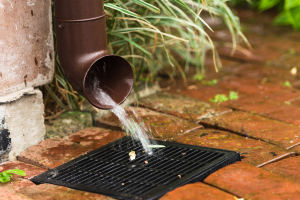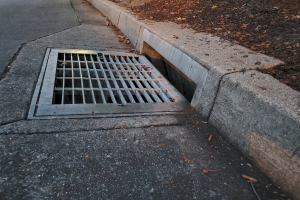Do Clean Storm Drains Prevent Sewer Backups?
Sewer backups are one of the most unpleasant and costly problems homeowners and municipalities can face. They not only lead to property damage but also cause serious health risks due to exposure to contaminated water. While many factors can contribute to these backups, one often overlooked element is the condition of storm drains.
How Storm Drains and Sewer Systems Are Connected
Storm drains are typically found along streets and parking lots, designed to capture rainwater and direct it away from roads and buildings. In newer infrastructure, stormwater is channeled separately from sanitary sewage. However, in older urban areas with combined sewer systems, stormwater and sewage travel through the same pipes. This means that heavy rainfall, especially when storm drains are clogged, can overwhelm the entire system.
When storm drains are clean, water flows freely into the drainage system, reducing the risk of overflow. But when they’re blocked with debris like leaves, trash, or sediment, water backs up on the surface. This added pressure can push sewage back through pipes and into homes or public spaces.

The Role of Maintenance in Preventing Backups
Regular maintenance of storm drains is critical for proper drainage and flood prevention. Municipalities often schedule storm drain cleaning to remove sediment and debris that accumulate over time. In neighborhoods, residents can do their part by ensuring that nearby storm grates are free from leaves and litter, especially before and during the rainy season.
So, Do Clean Storm Drains Prevent Sewer Backups? While keeping storm drains clean is not a complete solution to every sewer-related issue, it is one of the most effective and immediate actions to reduce the risk. Clean storm drains relieve pressure on the sewer infrastructure and help manage the flow of water during storms.
Signs of a Clogged Storm Drain
It’s important to recognize signs that a storm drain may be clogged or underperforming. Watch for:
- Water pooling around street grates after rain
- Flooding near curbs, driveways, or low-lying areas
- Foul smells coming from storm drain openings
- Debris buildup around or over the grates
These signs should be reported to local authorities, or in the case of private property, addressed by licensed drain professionals.
What Homeowners Can Do
While much of storm drain management falls under city jurisdiction, homeowners can still help prevent backups:
- Avoid dumping leaves, grass clippings, or garbage near drains
- Sweep driveways and sidewalks instead of hosing debris into the street
- Install backwater valves in basement plumbing to stop sewer water from flowing backward
- Schedule routine inspections for your home’s sewer line
Preventive care is far more affordable than cleaning up after a sewer backup. Being proactive can save thousands of dollars and a lot of stress.

Call for Professional Help
Even with regular maintenance, sewer line issues can develop out of sight. If you notice slow drains, foul odors, or water pooling in unusual places, it’s time to consult a professional.
Call (207) 814-8908 today to schedule a storm drain or sewer line inspection. Prompt service can prevent backups and costly damage before they happen.
Also Read:
